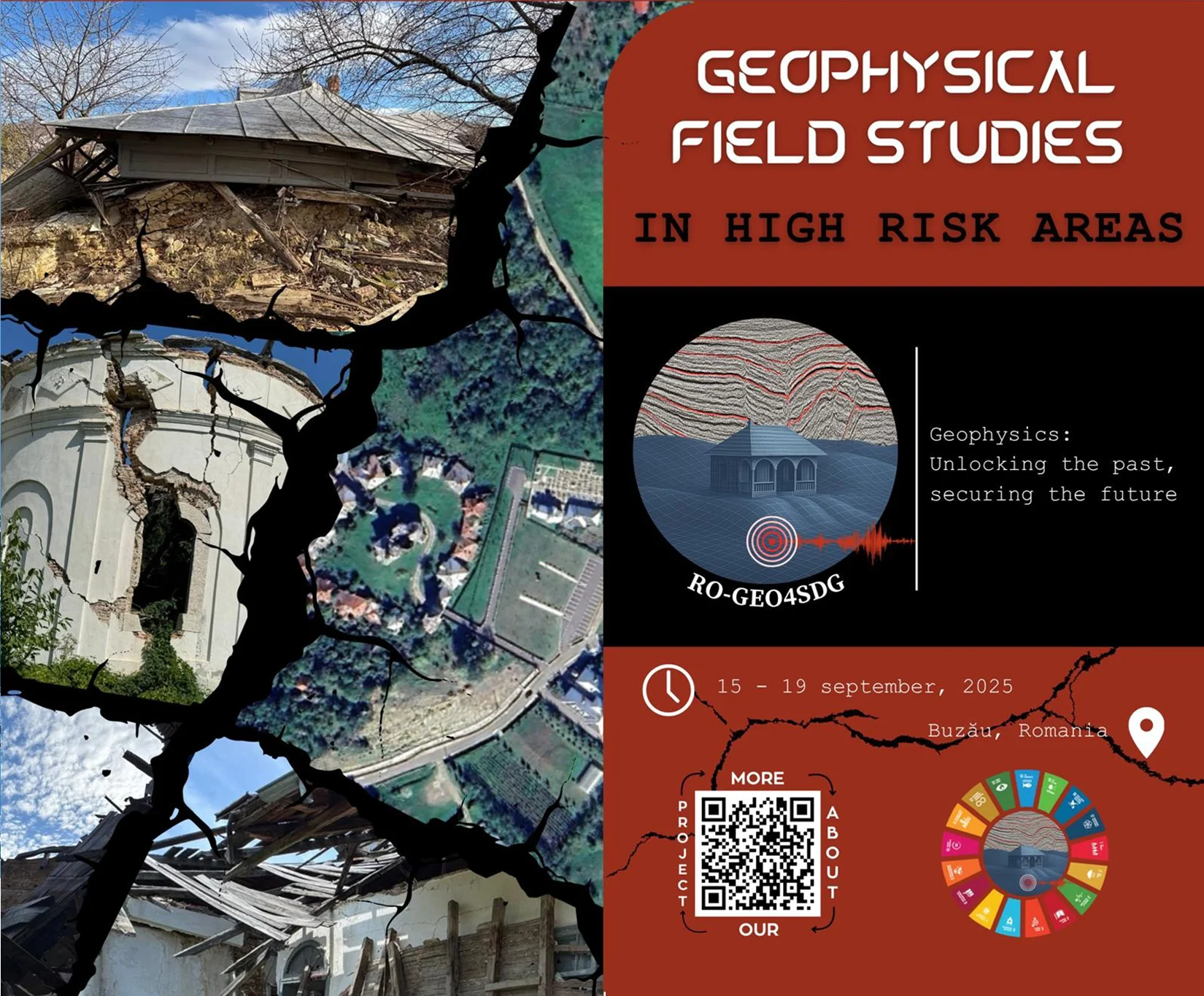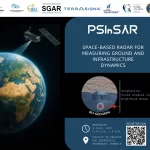A geoscience education and research initiative took place this summer in Rătești, Buzău County, where students from Romania and abroad gathered for the SEG Student Field Camp 2025. The event, funded through the SEG Field Camp 2024 program, was held under the theme “Geophysical Field Studies in High-Risk Areas: Unlocking the Past – Securing the Future.”
The field camp activities provided participants with hands-on experience in advanced geophysical methods, focusing on regions affected by natural hazards and historical infrastructure instability. Activities emphasized not only technical skill development but also the vital role of geophysics in supporting civil protection, environmental monitoring, and humanitarian efforts.
The project was coordinated by Lect. Dr. Eng. Florina Țuluca and BSC of SEG leaders – students at the Faculty of Geology and Geophysics of UB, field of study Geophysics, year IV – Ana-Elena Suditu and Gheorghe Turturea.
The field camp was co-organized by the SEG Bucharest Student Chapter – Faculty of Geology and Geophysics of the University of Bucharest and the Romanian Society of Applied Geophysics (SGAR), with institutional and technical support from the Institute of Geodynamics of the Romanian Academy, National Institute for Marine Geology and Geo-Ecology-GeoEcoMar, GeoLogData SRL, DIRAC, Terrasigna, GeoKit Green Solutions & Vibrometric.
Participants engaged in both airborne and ground-based geophysical surveys, using a wide array of instruments including ground-penetrating radar (GPR), seismic acquisition systems with +100 geophones, and electrical resistivity tomography (ERT).
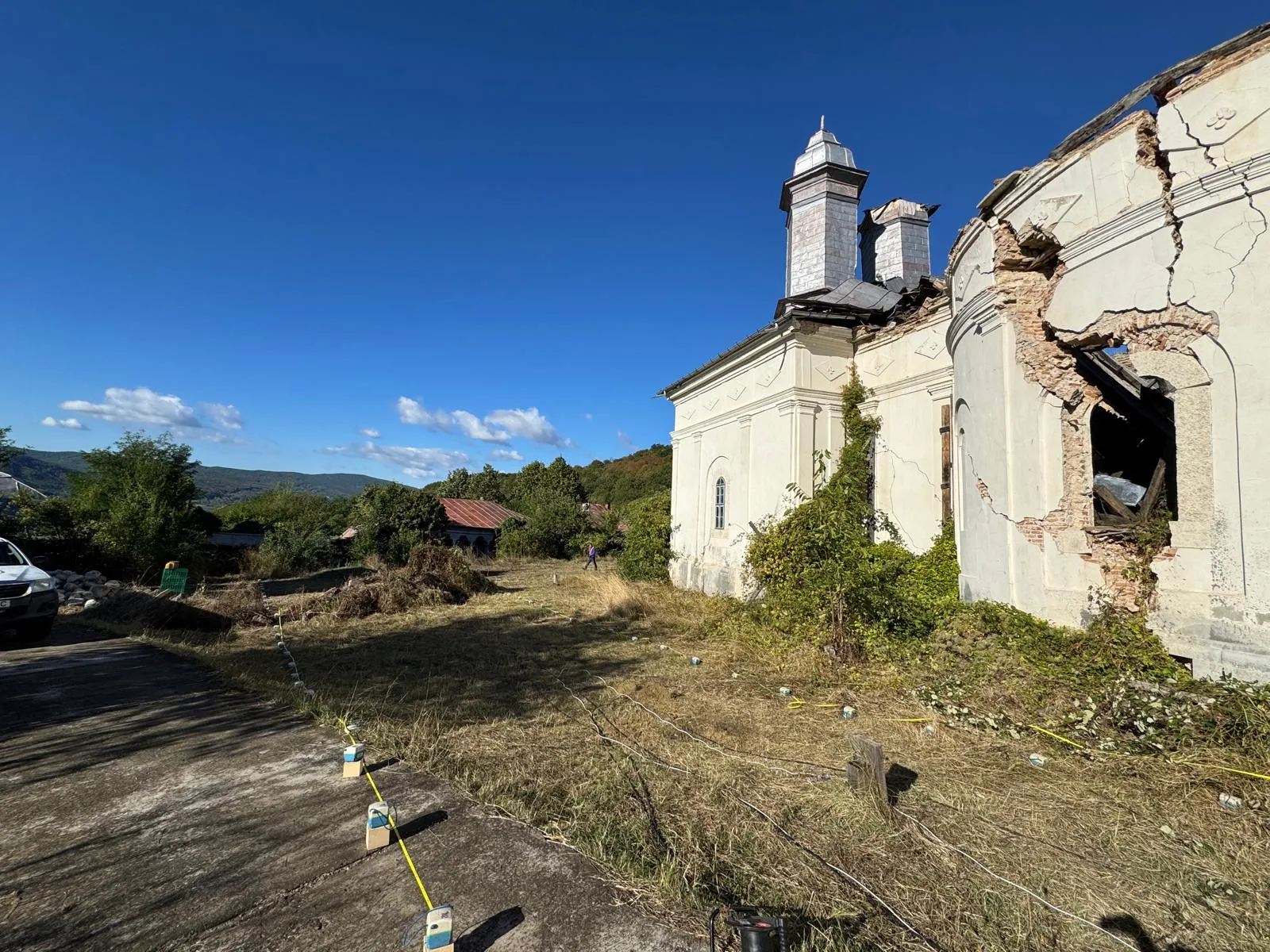
“This field camp was an eye-opening experience. I realized how much geophysics can impact everyday life, from protecting people to understanding the land we live on. It also reminded me why I chose this path in the first place,” declares Ana-Elena Suditu, Vice President of SEG Bucharest Student Chapter.
“What I enjoyed most was seeing theory come to life in the field. It’s one thing to study methods in class, but a completely different experience to apply them on a real site with challenges of its own,” says Vladimir Gheorghief, student participant at the SEG Student Field Camp 2025.
“The camp gave me a clear picture of what it really means to be a geophysicist. We learned to use advanced tools, but just as important, we learned how much teamwork matters when facing complex problems,” explains Timeea Manolache, student participant at the SEG Student Field Camp 2025.
Organizing this field camp together with our partners was both a challenge and a privilege. Seeing students, professors, and professionals working side by side in Rătești showed me how powerful collaboration can be. I am proud of what we achieved and grateful to everyone who made this experience possible,” says Gheorghe Turturea, President of the SEG Bucharest Student Chapter.
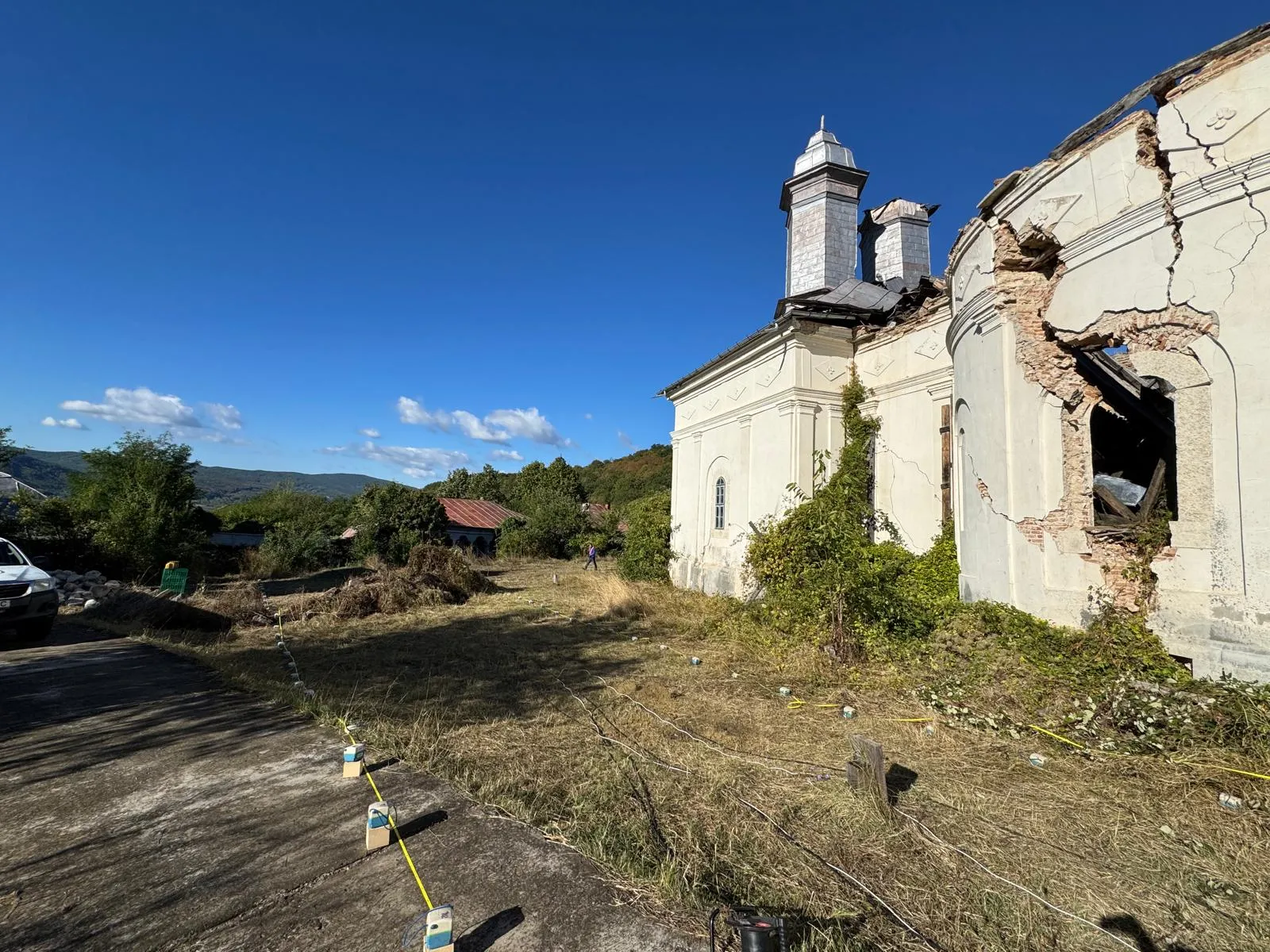
With its interdisciplinary approach and strong institutional backing, SEG Student Field Camp 2025 not only strengthened students’ technical competencies but also reinforced the importance of geoscience in serving society and supporting international cooperation. Key project contributors included Ilias Fikos from the Aristotle University of Thessaloniki, Mihaela Roca and Constantin Ungureanu, Lecturers at the Faculty of Geology and Geophysics, Irina Stanciu, an alumna of the Faculty of Geology and Geophysics and researcher at the GeoEcoMar, Andreea Andra-Topârceanu – Lecturer at the Faculty of Geography, Valentin Poncos (Terrasigna), and teams from GeoLogData SRL and DIRAC SRL – both companies founded by alumni of the Faculty of Geology and Geophysics of UB.
The international character of the camp added a valuable and distinctive dimension to the experience. Alongside the Romanian participants, students, and professionals from Greece, Nepal, Canada, and Algeria contributed their own perspectives and expertise, enriching both the scientific and cultural exchange. Working together in the field or during data processing meant not only exchanging ideas and learning new approaches, but also building connections across cultures and academic traditions.
“This project represents for me a full circle of my career. As an alumnus of the Faculty of Geology and Geophysics first and foremost, moving to electrical engineering, defense systems, and finally space-based systems and applications, I had the privilege of integrating synthetic aperture radar interferometry into the list of geophysical methods used by the students to measure and model landslide dynamics in Ratesti” declared Valentin Poncos (Terrasigna)
“I was honored to lead this year’s Field Camp project, awarded by SEG and the SEG Foundation. This action allowed me to integrate geophysics education with research to benefit both the local community of Ratesti and the student community. The data we acquired will become an integral part of the educational process, supporting classes, theses, and scientific presentations. Moreover, this project will strengthen international collaboration with institutions such as Aristotle University of Thessaloniki, Greece, and Centre de Recherche en Aménagement du Territoire (CRAT), as we work together to better understand the mechanisms driving land movements in Ratesti,” mentioned Florina Țuluca, President of the SGAR, and Lecturer at the Faculty of Geology and Geophysics, University of Bucharest.
The SEG Student Field Camp 2025 in Rătești reflected the very mission of the Society of Exploration Geophysicists: advancing geoscience while preparing the next generation of experts. Its success showed that when universities, professional societies, and industry partners come together with dedicated mentors and enthusiastic students, they can create meaningful educational opportunities and a real sense of purpose, innovation, and impact.
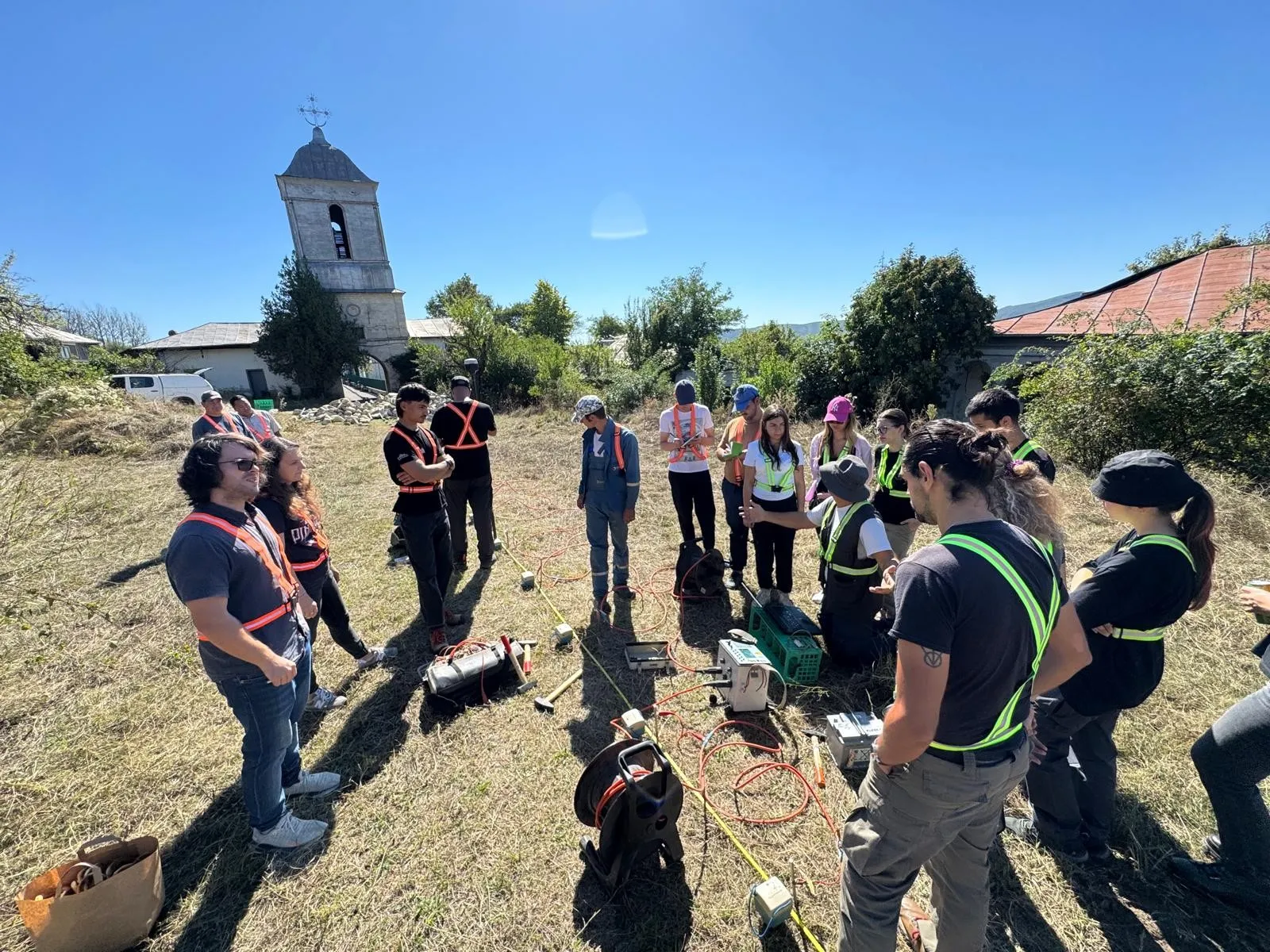
Acknowledgements: the organizers wish to express their sincere gratitude to the Abbess of Rătești Monastery for graciously granting permission to conduct geophysical measurements on the monastery grounds. Her kindness allowed participants to work in a place of great cultural and spiritual value, which gave the camp a special meaning beyond its scientific goals. Also, they want to thank the management of the Faculty of Geology and Geophysics of UB for supporting the implementation of the project.



